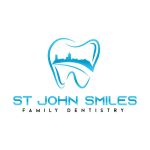Signs You Need a Dental Cleaning After a Long Time
- 1. The Importance of Regular Dental Cleanings
- 2. Common Signs That Indicate You Need a Dental Cleaning
- 3. How Long Is Too Long Between Dental Cleanings?
- 4. Risks of Avoiding a Dental Cleaning for Too Long
- 5. What Happens During a Dental Cleaning?
- 6. When Should You See a Dentist for a Cleaning?
- 7. Maintaining Oral Health After a Dental Cleaning
1. The Importance of Regular Dental Cleanings
Regular dental cleanings are crucial for maintaining optimal oral health. While daily brushing and flossing are essential for keeping your teeth clean, a professional cleaning at the dentist's office removes plaque and tartar buildup that brushing alone cannot eliminate. Plaque, which is a sticky film of bacteria, can harden into tartar if left on your teeth for too long. This can lead to gum disease, cavities, and other serious dental problems.
Getting your teeth cleaned every six months is typically recommended by dentists. However, depending on your oral health, some people may need cleanings more frequently, while others may be able to go longer between visits. Understanding the signs that it's time for a dental cleaning is key to preventing dental issues from developing or worsening.
2. Common Signs That Indicate You Need a Dental Cleaning
If it's been a while since your last visit to the dentist, there are several common signs that suggest it might be time for a dental cleaning:
- Bad Breath: Persistent bad breath, also known as halitosis, is often a sign of plaque buildup or gum disease. If brushing and flossing don’t improve your breath, it’s time for a professional cleaning.
- Bleeding Gums: Gums that bleed when you brush or floss are often a sign of gum disease. A professional cleaning can help remove the plaque and tartar that contribute to this problem.
- Visible Plaque or Tartar: If you notice a yellow or brown buildup on your teeth, it’s likely tartar, which can only be removed by a dentist or hygienist. Regular cleanings prevent this buildup from causing more serious problems.
- Tooth Sensitivity: Increased sensitivity to hot or cold foods and drinks may indicate gum recession, which can be caused by plaque buildup. A dental cleaning can help address this issue and improve comfort.
- Loose Teeth: If your teeth feel loose or shift position, it could be a sign of gum disease or bone loss caused by untreated plaque and tartar buildup. A cleaning can help address the underlying cause.
If you experience any of these symptoms, it’s a good idea to schedule a dental cleaning as soon as possible to prevent further complications.
3. How Long Is Too Long Between Dental Cleanings?
While every individual’s needs vary, the general recommendation is to get a dental cleaning every six months. However, if you’ve gone longer than a year without a cleaning, you may begin to experience signs of plaque and tartar buildup. In such cases, a professional cleaning is essential to remove the buildup that regular brushing can’t handle.
Some people, especially those with a history of gum disease, cavities, or plaque buildup, may need more frequent cleanings. Your dentist will be able to determine the right cleaning schedule based on your individual needs and oral health history.
4. Risks of Avoiding a Dental Cleaning for Too Long
Neglecting regular dental cleanings can lead to several serious oral health problems. Here are some of the risks of waiting too long between visits:
- Gum Disease: Plaque buildup can lead to gingivitis, an early stage of gum disease. If left untreated, gingivitis can progress to periodontitis, which can cause tooth loss and damage to the bone supporting your teeth.
- Cavities: Plaque that is not removed can turn into tartar, which contributes to cavities and tooth decay. This can lead to the need for fillings, crowns, or even tooth extraction if not addressed in time.
- Tooth Loss: Severe gum disease can result in tooth loss due to damage to the bone and ligaments supporting your teeth. Regular cleanings are crucial to prevent this from happening.
- Systemic Health Issues: Research has shown that poor oral health is linked to conditions like heart disease, diabetes, and respiratory infections. Regular cleanings help reduce the risk of these issues by keeping your mouth healthy.
The longer you wait between dental cleanings, the greater the risk of these problems becoming more serious and harder to treat.
5. What Happens During a Dental Cleaning?
A typical dental cleaning appointment involves several steps to ensure your teeth are thoroughly cleaned and your oral health is in good condition:
- Initial Examination: The hygienist will begin by examining your teeth and gums to check for any signs of plaque buildup, tartar, or gum disease.
- Scaling: The next step is scaling, where the hygienist uses special tools to remove plaque and tartar from the surface of your teeth and below the gumline.
- Polishing: After scaling, the teeth are polished to remove any remaining plaque and to smooth the surfaces of your teeth, making it harder for plaque to accumulate in the future.
- Fluoride Treatment: A fluoride treatment is often applied to help strengthen your enamel and prevent cavities. This is particularly important for individuals who are prone to tooth decay.
Overall, a dental cleaning takes about 30 to 60 minutes and leaves you with cleaner, healthier teeth and gums.
6. When Should You See a Dentist for a Cleaning?
If it's been more than six months since your last dental cleaning, or if you're experiencing any of the signs mentioned earlier, it’s time to make an appointment with your dentist. Even if you haven’t noticed any major issues, regular cleanings help prevent future problems and ensure that your teeth stay in great condition.
Regular visits also allow your dentist to catch any issues early before they become more serious and require costly treatments.
7. Maintaining Oral Health After a Dental Cleaning
After your dental cleaning, it’s important to maintain the health of your teeth and gums by following a good oral hygiene routine. This includes brushing your teeth twice a day with fluoride toothpaste, flossing daily, and avoiding sugary foods and drinks that contribute to plaque buildup.
Regular visits to your dentist and maintaining a consistent oral care routine will help keep your smile healthy and bright for years to come.
If you're due for a dental cleaning or want to learn more about maintaining your oral health, visit Dentistry Toothtruth for expert guidance and professional services.







 St John Smiles4.0 (238 review)
St John Smiles4.0 (238 review) Queens Dental Group4.0 (114 review)
Queens Dental Group4.0 (114 review) Smile Scarsdale Pediatric Dentistry & Family Orthodontics4.0 (480 review)
Smile Scarsdale Pediatric Dentistry & Family Orthodontics4.0 (480 review) Dr. Jean L. Beninato, DMD3.0 (7 review)
Dr. Jean L. Beninato, DMD3.0 (7 review) Dr. Bruce King DDS4.0 (112 review)
Dr. Bruce King DDS4.0 (112 review) St. Paul Oral Surgery - Mendota Heights4.0 (214 review)
St. Paul Oral Surgery - Mendota Heights4.0 (214 review) The Importance of Oral Health Education During Pregnancy for a Healthy Pregnancy
The Importance of Oral Health Education During Pregnancy for a Healthy Pregnancy Best Tips for Brushing Your Teeth Properly for Healthy Gums: Essential Techniques for Oral Health
Best Tips for Brushing Your Teeth Properly for Healthy Gums: Essential Techniques for Oral Health Why Skipping Dental Checkups Can Lead to Bigger Oral Health Problems
Why Skipping Dental Checkups Can Lead to Bigger Oral Health Problems Advantages of Porcelain Dental Restorations
Advantages of Porcelain Dental Restorations How Can Diabetes Cause Tooth and Gum Problems? Preventing and Managing Oral Health Issues
How Can Diabetes Cause Tooth and Gum Problems? Preventing and Managing Oral Health Issues Healthy Habits for Promoting Good Oral Health and Hygiene: Tips for a Healthy Smile
Healthy Habits for Promoting Good Oral Health and Hygiene: Tips for a Healthy Smile